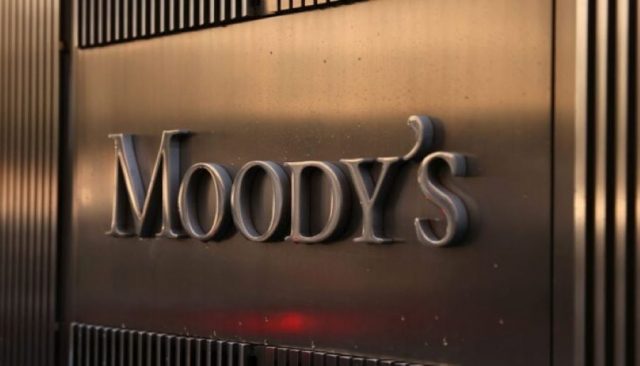MON, 31 OCT, 2022-theGBJournal| Moody’s Investors Service (Moody’s) has downgraded the ratings of Dangote Cement Plc (DCP), IHS Holding Limited (IHS) and Seplat Energy Plc (Seplat) and placed the ratings on review for downgrade.
The rating actions follow the weakening of the Nigerian government’s credit profile, as captured by Moody’s recent decision to downgrade Nigeria’s government bond ratings to B3 from B2 and place the ratings on review for downgrade.
Moody’s also lowered Nigeria’s local currency country ceiling to B1 from Ba3 and the foreign currency country ceiling to B3 from B2. For further information, refer to the sovereign press release published on 21 October 2022
Moody’s has also repositioned the national scale corporate family rating (CFR) of Dangote Cement Plc to A3.ng from Aa3.ng to reflect the mapping of Global Scale Ratings to National Scale Ratings.
Moody’s said the rating actions on these corporates are a direct consequence of the downgrade of the Government of Nigeria and the lowering of Nigeria’s foreign currency country ceiling, both to B3.
‘’As a result, Nigerian corporates which were previously constrained at the B2 ceiling are now constrained at B3. All ratings are placed on review for downgrade to reflect the outlook on the sovereign rating.’’
According to Moody’s: The rated corporates continue to have relatively prudent financial policies, adequate liquidity, moderate to low leverage and strong business profiles, generally supported by market leading positions, some geographic diversification outside of Nigeria or export revenues. However, all three issuers’ ratings are constrained by the foreign currency country ceiling because these companies are materially exposed to Nigeria ‘s economic, political, legal, fiscal and regulatory environment.
Seplat is less exposed to convertibility risk given most of its revenue are paid in dollars. However, its export dollar oil revenue are required to be repatriated back into Nigeria within 90 days of receipt, after which Seplat can transfer these US dollar funds back into offshore bank accounts. To date Seplat has had no restrictions imposed from Central Bank of Nigeria and the company targets to have 70% of total cash balances in USD and 70% of that in offshore accounts. Seplat’s $650 million senior unsecured notes are due in 2026 and the company has a good liquidity profile supported by $305 million of cash on balance sheet and full access to the $350 million undrawn revolving credit facility as of September 2022.
DCP’s high proportion of dollar debt in the capital structure exposes the company to currency convertibility risk. While DCP continues to grow its dollar revenue through exports and repatriations of dollar cash flow from its other African operations, it is still reliant on the Central Bank of Nigeria for dollars, which remains restricted. The company’s liquidity profile is adequate but is exposed to ongoing refinancing risks because of the large portion of short term debt equal to NGN326 billion, representing 60% of total debt as of 30 June 2022. DCP benefits from strong cash flow generation with cash balances of NGN194 billion as of 30 June 2022.
For IHS, the downgrade also reflects exposure to currency convertibility risk, which over time will weaken the company’s liquidity position if it is unable for a prolonged period of time, to upstream cash flow generated in Nigeria to the group level. IHS earns around 67% of its EBITDA from Nigeria, which is denominated in naira. IHS’ contracts are either dollar-linked or have naira CPI pricing escalators that allow the company to pass through most of the cost inflation or currency depreciation it is exposed to.
Nevertheless, the fact that revenues are invoiced in naira exposes the company to dollar shortages in the country and the resulting convertibility risk. IHS serves its dollar bonds through cash upstreamed to the group by its international operations, the largest one of which are in Nigeria. During the six months to June 2022, IHS upstreamed $147 million of cash from Nigeria, in addition to regular upstreams from other operating companies.
Liquidity remains good and is supported by a cash balance of around $500 million outside of Nigeria as well as a $270 million fully available liquidity facility, which Moody’s expects will provide the company with adequate liquidity for the next 2-3 years, even in case it was unable to upstream any cash flow from Nigeria over this timeframe.
Twitter-@theGBJournal| Facebook-The Government and Business Journal|email: gbj@govbusinessjournal.ng|govandbusinessj@gmail.com










